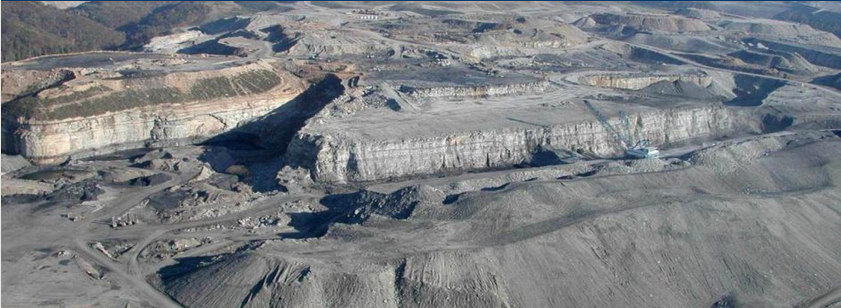Earlier this week, Barclays Bank did something amazing -- one of the world’s largest banks announced it would no longer finance coal-mining companies that pursue the destructive practice of mountaintop removal mining (MTR) in Appalachia.
As of only twelve months ago, Barclays Bank had been identified by the Rainforest Action Network as number one worldwide in providing financing for MTR producers. But after increasing pressure from environmental advocacy groups, Barclays joined Wells Fargo, Royal Bank of Scotland, UBS, BNP Paribas, Societe Generale, and, most recently, PNC in divesting from the practice of mountaintop removal -- a particularly invasive process that involves blasting off the summit of a mountain in order to expose underground coal and then dumping the debris into adjacent valleys and streams.
Barclays’ divestment from mountaintop removal mining is just the most recent step in a shift that companies and citizens are making to move toward a clean energy future that gets the world off dirty fossil fuels.
In fact, divestment from more than just MTR -- from fossil fuels entirely -- has been growing, particularly on college campuses. Since, 2011, the Sierra Student Coalition has committed to asking colleges across the country to divest from fossil fuels entirely. The movement has expanded to over 300 campuses -- including heavyweights like Harvard which has the largest endowment in the world -- where clean energy champions are working to push college and university administrations to stop investing billions of dollars of college and university endowment money in the fossil fuel industry and reinvest in environmentally and socially responsible alternatives. In just the past four years, nine colleges and universities have committed to divesting from fossil fuels and the momentum is growing.
At the same time, public funding for coal is drying up. President Obama pledged to end U.S. financing of overseas coal when he announced his Climate Action Plan in June 2013. Soon after, the Nordic Countries, the Netherlands, the United Kingdom, and most recently France also pledged to end financing for overseas coal plants. Meanwhile, International Financial Institutions (IFIs) that receive public funds -- including the World Bank, the European Investment Bank, and the European Bank for Reconstruction and Development -- have put in place new policies to end support for coal except in rare circumstances.
This represents a massive shift in global energy financing. Between 2002 and 2012, the United States and France were both in the top five Organization for Economic Cooperation and Development (OECD) countries to finance coal. We are already seeing the effects of this shift, with the U.S. Export-Import Bank’s (Ex-Im) decision to reject a coal project in Vietnam. However, it is up to us to ensure that entrenched forces within these institutions do not exploit loopholes that could allow them to backslide into supporting dangerous fossil fuel projects.
Recent media reports indicate Ex-Im is considering using one such loophole to finance coal giant Adani’s proposed massive coal mine and export termina Australia, which would release a huge carbon reserve from the country’s Galilee Basin through ports expanded by dredging three million tonnes of seabed from the bottom of the Great Barrier Reef. The Reef is already crumbling under the pressure of warming oceans, and we shouldn’t accelerate its demise by dredging or by increasing carbon emissions from coal. We should instead be working to save it.
More importantly, the Adani project represents everything that is wrong with public financing being used to prop up fossil fuels. Private banks -- including Citibank, Deutsche Bank, Royal Bank of Scotland, HSBC, Barclays, Goldman Sachs, and JPMorgan Chase -- have all stated that they will not support the project due to the environmental risks and mounting evidence that it is not financially viable.
Instead of trying to salvage the outdated, dangerous, and economically risky coal sector, we should invest in the booming clean energy sector, where every dollar creates more jobs than that same dollar would in the fossil fuel sector. Barclays’ divestment from mountaintop removal mining, in addition to the nine U.S. college and university campuses that have already divested from fossil fuels in their entirety and the 300 more on their way to fully divesting, are another big step toward a 100 percent clean energy economy.
Now its time for the laggards -- countries, IFIs, and the private sector -- to follow suit.
